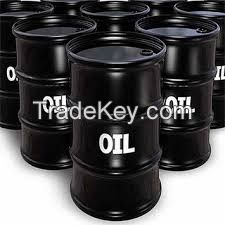Description
D2 is a refinery abbreviation for Gasoil. It is the second
distillate from the crude, and can be used without reformers and
additives. So, the first engines used D2 as fuel - before petrol
cars as we know them today was invented. That is because the engine
invented by a German called Diesel, requires no spark plugs. The
diesel engine will ignite and combust when the pressure increases
so that the heated "plug" makes it explode. Here we get the name
"Diesel" - since the same principles are used in diesel engines
today. However, automotive diesel that you fill has additives that
the refinery will add to make the engine more efficient and also
easier to start in the winter. if you read the small print, you
will see that diesel changes "flash point" in the winter. It also
has additives to absorb water that condense as you have it in your
car (same as petrol) - but since the diesel is injected right into
the cylinder, the ice will destroy the nozzles long before the
engine. If you use summer diesel in the winter, you will get better
mileage, but your fuel pipes may freeze and can also burst, and the
wax makes the diesel flow thicker.
The principal differentiators in GASOIL or D2 is the content of
sulphur. Just *0 years ago, the US EPA introduced a limit of 4%
sulphur in the GASOIL, whereas Europe and the rest of the world
followed later. As in most other cases, when you first have to
remove the sulphur, it was soon discovered ways of doing this more
efficient. Then it was discovered that the sulphur, as sulphuric
acid, could be traded with a good profit - which now is the
motivator for extracting as much as possible. Well, pour this over
limestone, and you get cement and add to it other chemicals, and
you can get cement that are more valuable than the
Gasoil / D2.
So "Low sulphur Gasoil" is no longer 4 percent - but below 0.2
percent. Then we have a new, "Ultra Low Sulphur" at 0.*2% at the
most, and the limit here is (a) that mass spectographs requires
extensive calibration to measure below ***0ppm, and (b) sulphur has
a way to form clogs - the molecules binds to free hydrogen
molecules and form a cluster of molecules that will break if
"cracked" by the refinery, but as explained above, D2 is a
distillate and has not been "cracked". So - take a pint of ULSG,
you


